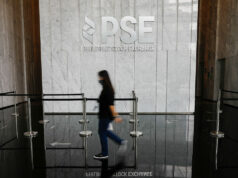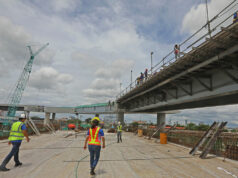PHL urged to spend $22.8 billion on cybersecurity
THE PHILIPPINES needs to spend $22.8 billion (P164 billion) on cybersecurity between 2017 and 2025 to be in line with “global best-in-class countries,” according to new research commissioned by Cisco Systems, Inc.
Citing the research “Cybersecurity in ASEAN: An Urgent Call to Action” carried out by consulting firm A.T. Kearney, Cisco said the Philippines only spent approximately 0.04% of its collective gross domestic product (GDP) on cybersecurity in 2017.
“It needs to spend $8.8 billion between now and 2025 to be in line with the average benchmark for mature markets like the US, UK and Germany. To match the global best-in-class, Philippines needs to spend $22.8 billion during that period,” Cisco said.
Enrique Rodriguez, Cisco country manager for Philippines, noted the Philippines is one of the countries most prone to cyber attacks in Southeast Asia.
“The country’s ability to tackle these threats will be a crucial factor in safeguarding its future economic growth. The government has outlined its approach in the recently released National Cyber Security Plan 2022,” Mr. Rodriguez was quoted as saying.
The Cisco official said stakeholders should work together and build the country’s cybersecurity capabilities. Among these efforts include “strengthening infrastructure, fostering research and development capabilities, boosting local cybersecurity industry and developing a pool of cybersecurity professionals.”
The research report also showed companies across the Association of Southeast Asian Nations (ASEAN) region face the growing risk of cyber attacks, which could expose the region’s top listed firms to a $750-billion erosion in current market capitalization.
In the absence of a regional governance framework, the report showed shortage of skilled talent, and underestimation of risk will contribute to the heightened risk.
The study showed ASEAN countries are underspending on cybersecurity, with the region currently spending an average of 0.07% of its collective GDP on cybersecurity annually. It would need to increase the spending to between 0.35% and 0.61% of GDP between 2017 and 2025, “to be in line with the best in class.”
“The research estimates that this translates to $171 billion in collective spend needed across ASEAN countries during the period. Limited sharing of threat intelligence, often because of mistrust and a lack of transparency, will lead to even more porous cyber defense mechanisms,” Cisco said.
Naveen Menon, president of Cisco for ASEAN, said digital innovation and adoption are central pillars of economic growth for the regional bloc, and its success will depend on its ability to combat cyber threats.
“Cybersecurity needs to be an integral part of policy discussions at the semi-annual ASEAN Summit, with the aim of developing a unified policy framework for the region. The corporate sector also needs to start treating cybersecurity as a business-wide issue that can only be tackled by adopting a risk-centric approach to building resilience, rather than just an IT problem,” Mr. Menon said. — Patrizia Paola C. Marcelo



